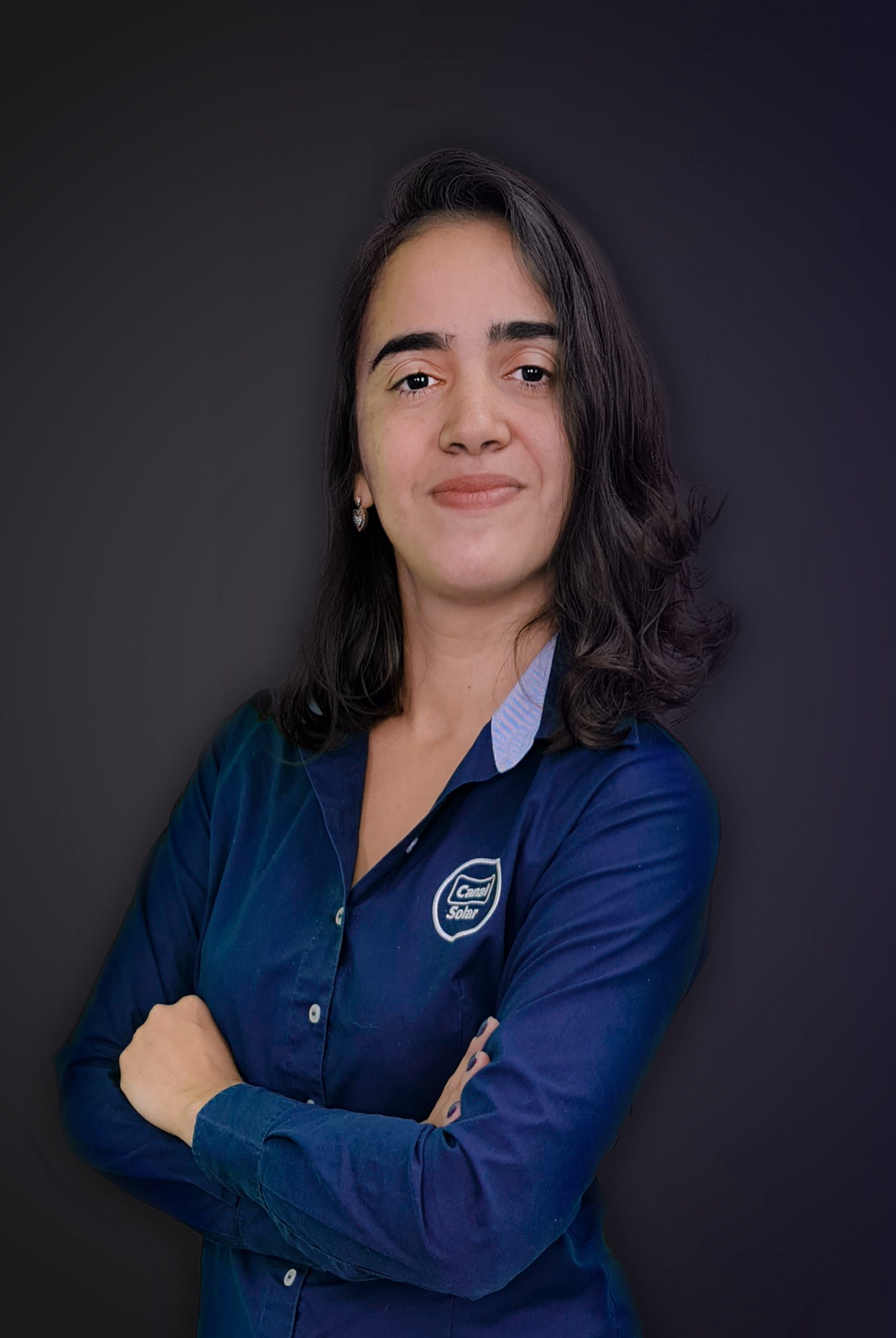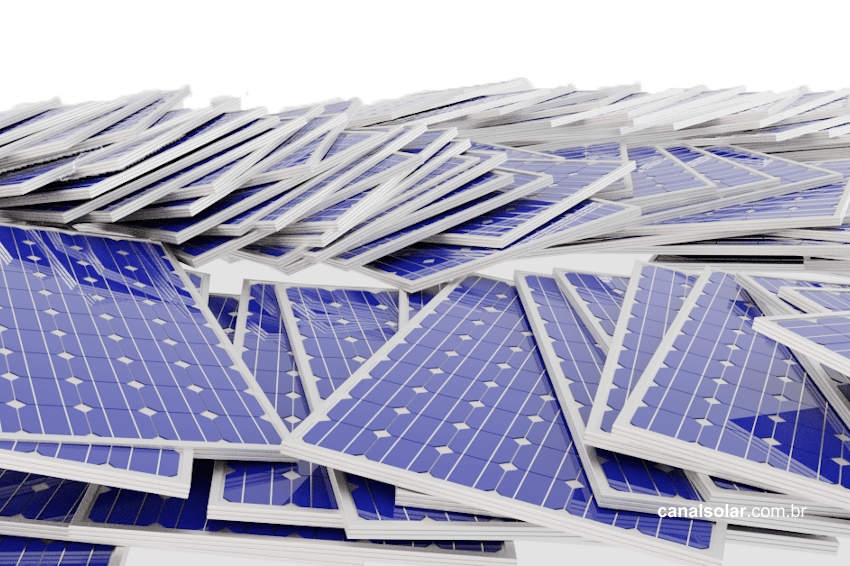More than 78 million tons of solar panel waste will be discarded worldwide by 2050, according to projections by IRENA (International Renewable Energy Agency).
These estimates bring a new environmental challenge, but they also present opportunities for new businesses in the solar energy sector.
According to IRENA, more than US$ 15 billion can be injected into the global economy if these discarded materials are fully recycled and returned to the production chain.
Many countries have already started this race and, for them, recycling photovoltaic materials has been a reality for years.
Also according to IRENA, approximately 550,000 tons of photovoltaic panels will be discarded in Brazil over the next 30 years. As a result, the country will be the largest country generating waste of this type in Latin America.
Currently, photovoltaic modules are designed to last 25 to 30 years. However, modules are not discarded exclusively at the end of their useful life.

According to Leonardo Gasparini Duarte, owner of the company SunR, there are other factors that cause this product to be discarded. “Disposal can occur when photovoltaic materials do not meet quality tests or suffer damage in the production process.
Furthermore, during logistics between importers, distributors, factories and the integrator, module transport accidents may occur, which makes the installation and sale of modules unfeasible, generating the need for disposal. Accidents during the installation and integration of photovoltaic systems can also make it necessary to discard the product”, pointed out Leonardo.
A SunR is the first company in Latin America to operate in the recycling sector. The basic technology used in the Brazilian company was developed in Europe, a precursor of the photovoltaic industry, where these materials have been recycled for many decades.
“The idea of bringing this technology to Brazil came from a market study. Our proposal is to solve the environmental problem, linked to the disposal of photovoltaic modules, and ensure that photovoltaic energy becomes, in fact, a sustainable solution. With a business model aimed at reducing logistics costs and creating strategic partnerships with integrators, factories, distributors and photovoltaic insurers across the country, our goal is to offer reverse logistics solutions, collection and recycling of Brazilian modules, reducing costs and collection, transportation and recycling processes for our customers”, explains Leonardo Gasparini Duarte, owner-partner of SunR.
The photovoltaic panel recycling process has several stages and involves the participation of integrators and distributors. According to Duarte, when the demand for material removal arises, a closest strategic partner is called to the collection site to remove the modules and other components of the system to be discarded. Afterwards, the material is stored until it becomes logistically and financially viable to transport it to São Paulo, where recycling will take place.
Duarte also highlights that the main stage of recycling is separation. “The materials received undergo an initial screening to assess the condition of each module and to check whether any additional processes will be necessary. After this initial assessment, the first step is to mechanically remove the outer aluminum frame along with the connectors and junction box.
Next, the modules go into the glass removal process. What remains after removing the glass, aluminum and plastic is incinerated and chemically treated to separate other metals. The most commonly collected materials are: aluminum, glass, silver, copper, plastic, silicon and tellurium.”
After collection and separation, the materials are sent to their appropriate buyers, which are recycling and processing companies for pure materials, which will transform the collected materials into raw materials with the necessary characteristics for each type of industry for which they are intended.
For the recycling process, SunR has partnerships with integrators and companies in the solar energy sector. “For integrators, we offer regional exclusivity to meet collection and uninstallation demands and, in return, they provide us with space to store the modules for later removal.
For factories, assemblers and distributors, we collect discarded modules periodically, replacing the cost of disposal in landfills and other destinations that already exist. For insurance companies, we offer our network of partnerships to facilitate the uninstallation of the material and we also offer the logistical solution, as for other waste generators”, explains Leonardo.

















One Response
Good afternoon,
I'm from the research sector at the company Rodonaves and we suffer a lot with issues involving solar panel failures, and most of the time we don't have a destination for them and we end up selling them in batches with several materials mixed together. We are looking for solutions to improve this part and even help us with the financial loss of these plates!
I would like more information about recycling processes and values.
Yours sincerely,
Leonardo Mariano